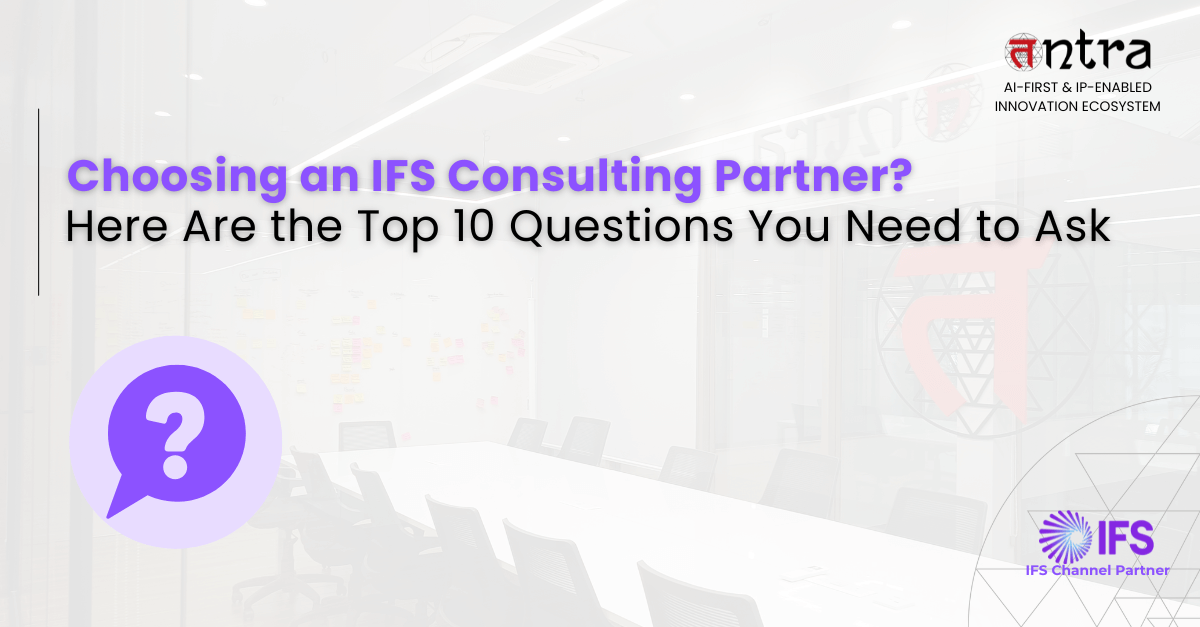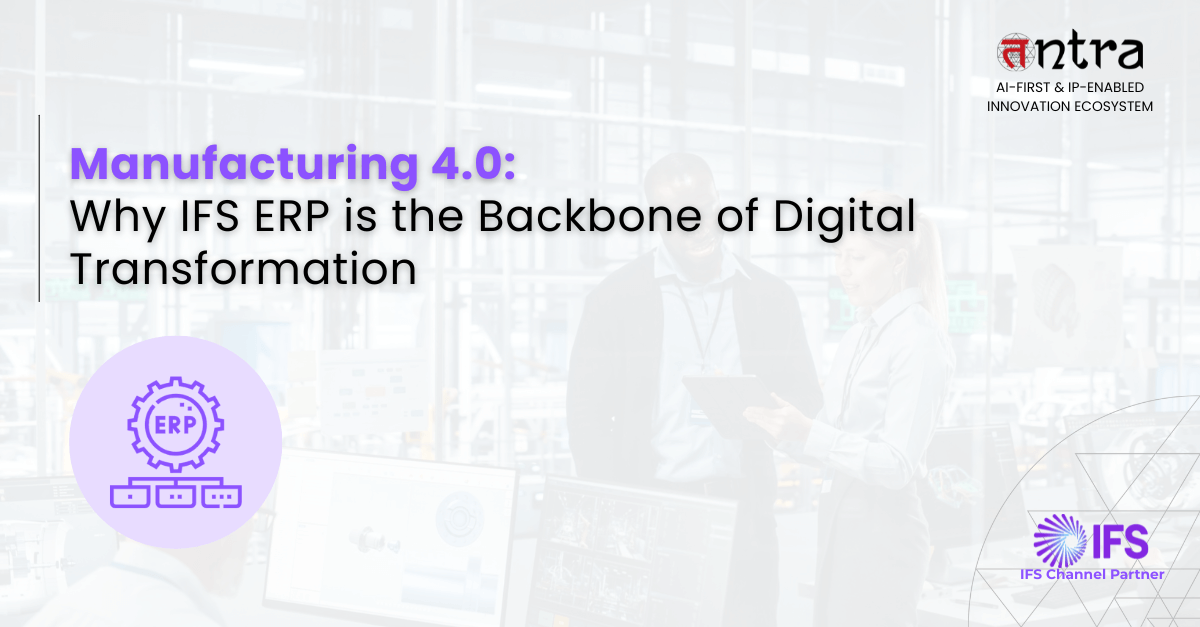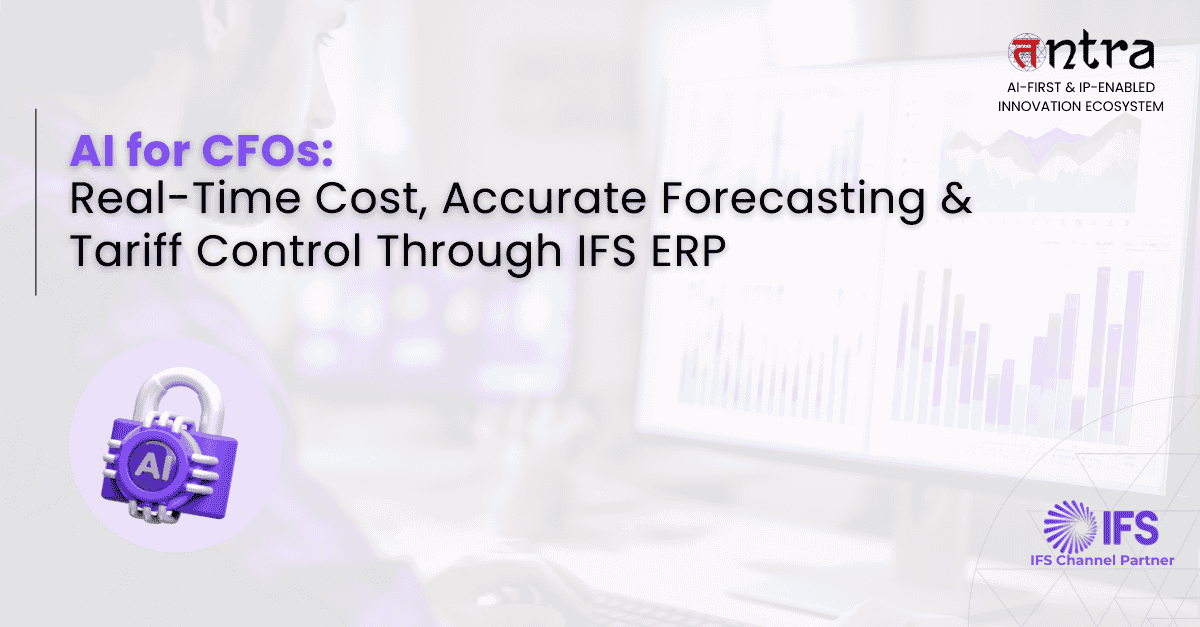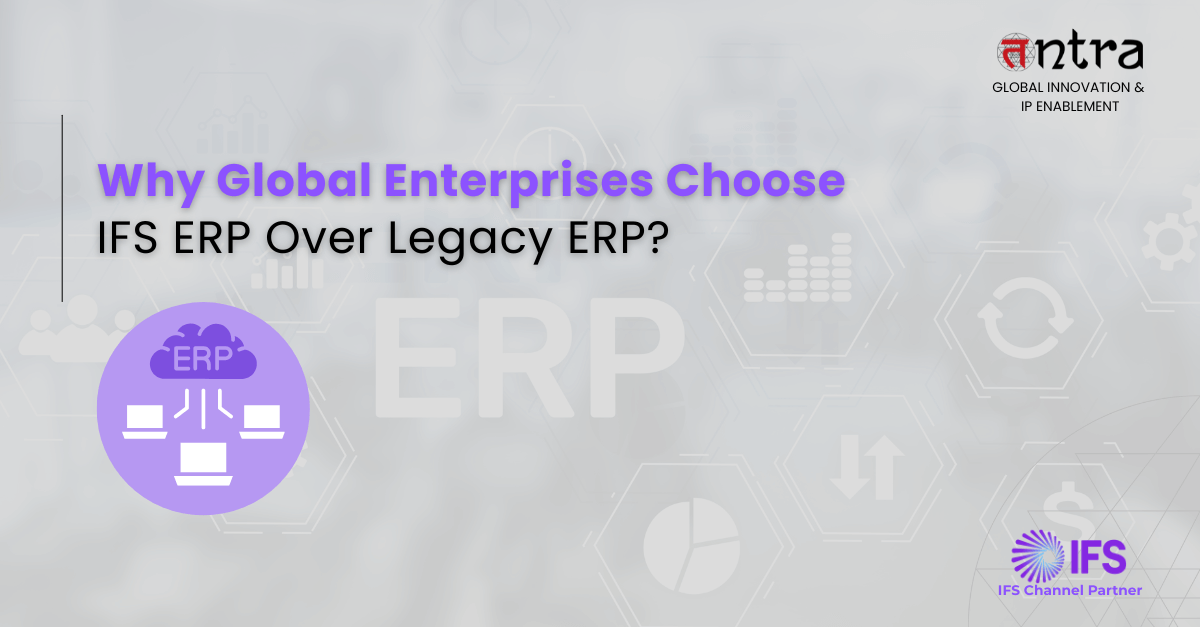
Why Global Enterprises Choose IFS ERP Over Legacy ERP
Table of Contents
ToggleLegacy ERP systems are holding enterprises back with rigid processes, costly maintenance, and slow adaptability. IFS ERP delivers a modern, agile, and industry-focused enterprise ERP solution designed for today’s fast-changing business environment. From IFS Cloud ERP to expert consulting and smooth implementation, IFS ERP software empowers organizations to streamline operations, improve decision-making, and future-proof their IFS ERP solution. This blog explores why global companies are choosing IFS over legacy ERP and how the right partner can turn ERP digital transformation into a lasting competitive edge. Continue reading to learn more.
If you’ve ever tried to run a modern, fast-moving global business on a legacy ERP system, you probably know the pain.
The endless customizations.
The months-long upgrade cycles.
The constant IT firefighting just to keep basic processes running.
It’s like trying to race a Formula 1 car with the engine of a 20-year-old sedan, it will move, but it’s never going to win.
That’s why global enterprises across industries — from aerospace to manufacturing to energy — are moving away from the clunky, outdated systems they’ve relied on for decades and embracing IFS ERP solutions.
And it’s not just about getting a newer system. It’s about choosing a modern enterprise ERP solution designed for agility, scalability, and digital transformation. With IFS ERP software and IFS Cloud ERP, organizations can streamline operations, improve decision-making, and build a system that grows with them.
In this blog, we’ll explore why global enterprises choose IFS ERP over legacy ERP systems, how the right IFS ERP partner and consultants make all the difference, and what makes IFS a next-generation ERP platform for digital transformation.
The Limitations of Legacy ERP Systems for Global Enterprises
Legacy ERP systems weren’t bad when they first launched. In fact, for their time, they were game-changing. But the world has changed. Supply chains are more complex. Customer expectations are sky-high. Market disruptions happen overnight.
Here’s what you get stuck with in a legacy setup:
- Rigid architectures that make every small change a project.
- Inflexible licensing models that cost a fortune as you scale.
- Slow performance when integrating with modern tools.
- Siloed data that kills decision-making speed.
Global enterprises can’t afford that kind of drag. That’s why many are choosing IFS ERP solutions and IFS ERP software as the go-to alternative for a modern enterprise ERP solution.
Why IFS ERP Software is the Best Modern ERP Solution
If legacy ERP is like a heavy cruise ship, powerful but slow to turn, IFS ERP system is like a high-tech, agile speedboat that can navigate anything you throw at it.
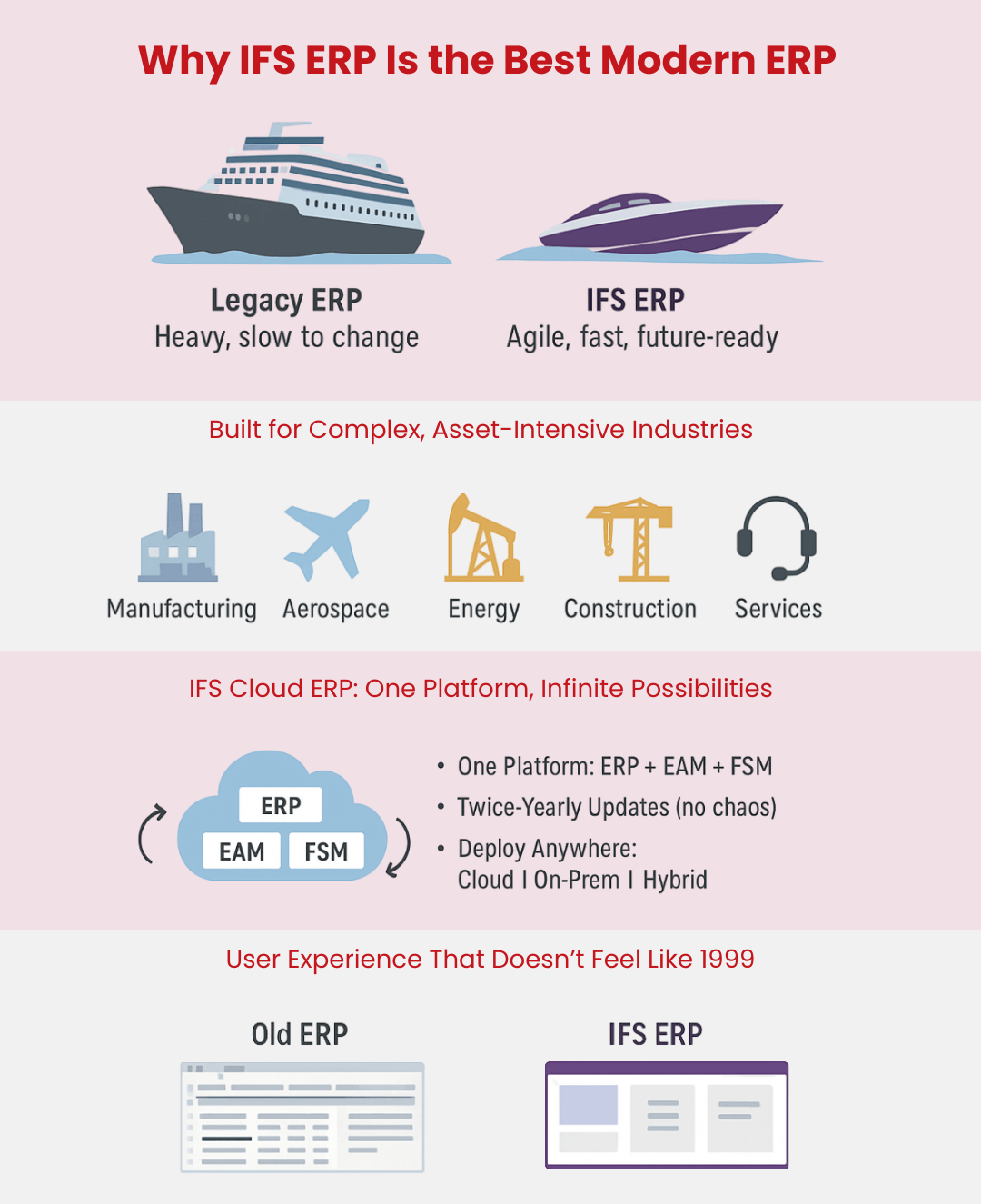
Here’s what makes IFS ERP software stand out:
1. Built for Complex, Asset-Intensive Industries
IFS was never about being everything to everyone. It focuses deeply on sectors like manufacturing, aerospace, energy, construction, and service industries, where the complexity of operations is massive and downtime costs millions.
2. IFS Cloud ERP: One Platform, Infinite Possibilities
The move to IFS Cloud ERP isn’t just an upgrade. It’s a complete rethink of how ERP should function:
- Everything in one platform, ERP, EAM (Enterprise Asset Management), FSM (Field Service Management).
- Updates are delivered twice a year, without the chaos of massive version jumps.
- The flexibility to run in the cloud, on-prem, or hybrid.
3. User Experience That Doesn’t Feel Like 1999
One of the biggest complaints about older ERP solutions? You need a week of training just to run a basic report. IFS ERP actually feels modern. It’s intuitive, clean, and built with role-based views so users see what they need, not 10 extra tabs they’ll never touch.
How IFS ERP Consultants & Implementation Partners Ensure Success
Technology is only as good as its implementation. The right IFS ERP partner and consultants ensure smooth deployment of your IFS ERP solution, aligning technology with business goals.
IFS ERP consultants bring not just technical skills but deep industry knowledge. They’ve seen where projects succeed, where they stall, and how to avoid the expensive pitfalls.
A solid IFS ERP Consulting Service will help you:
- Map your business processes to the right configuration in IFS.
- Ensure data migration is clean and structured.
- Build workflows that enhance, not disrupt, your daily operations.
Many enterprises now hire IFS ERP consultants before they even finalize the project scope, ensuring the planning phase is as strong as the execution.
Driving ERP Digital Transformation with IFS Cloud ERP
Digital transformation isn’t just a buzzword anymore. For most global companies, it’s survival.
When it comes to ERP digital transformation, IFS plays a unique role, it doesn’t just digitize what you already do; it reimagines it.
For example:
- Predictive maintenance using IoT data, not guesswork.
- AI-driven scheduling that reacts instantly to resource changes.
- Real-time project tracking for better decision-making.
That’s why enterprises consider IFS not just an ERP solution, but a true enterprise ERP solution that evolves with them.
Why Hire IFS ERP Consultants for Successful ERP Projects
An IFS consultant isn’t just a tech person, they’re your strategic partner.
Think of them as part translator, part architect, part project manager. They bridge the gap between your operations and the IFS platform, ensuring that:
- The technology fits your unique workflows.
- The change management plan keeps teams engaged.
- You get ROI faster, not years later.
For many enterprises, the choice of ERP isn’t just about software features, it’s about the people who will bring it to life.
Why Global Enterprises Choose IFS ERP Over Legacy ERP
The big drivers for moving from legacy ERP to IFS often fall into three buckets:
1. Cost and Complexity Reduction
Legacy ERP often requires massive customization, which becomes expensive to maintain. IFS reduces this by delivering a more flexible base product that doesn’t need endless patches.
2. Agility for Growth
When entering new markets, acquiring companies, or launching new services, IFS adapts faster than older systems. You can reconfigure processes without rewriting your entire ERP.
3. Future-Proofing
With IFS Cloud ERP, enterprises know they’re always on the latest version. No more decade-long gaps between upgrades.
Real-World Example
A global manufacturing leader was running on a 15-year-old ERP system. Every plant had custom processes, upgrades were impossible without breaking something, and reporting took weeks. After moving to IFS ERP software, they:
- Unified 12 plants under one system.
- Reduced reporting time from 10 days to real-time dashboards.
- Saved millions annually in maintenance and support.
IFS ERP vs SAP, Oracle, and Microsoft Dynamics
When comparing IFS ERP to competitors like SAP, Oracle ERP, and Microsoft Dynamics, the difference lies in agility and industry focus.
- SAP & Oracle ERP are powerful but often too rigid and expensive to customize.
- Microsoft Dynamics offers flexibility but lacks deep capabilities for asset-intensive industries.
- IFS Cloud ERP stands out as a modern enterprise ERP solution, purpose-built for industries like manufacturing, energy, aerospace, and service management — combining lower TCO with faster innovation.
Legacy ERP to IFS Cloud Migration: Key Steps for Success
Switching ERP systems is a big decision, but it doesn’t have to be a nightmare. Here’s how enterprises are approaching it:
- Assess Business Needs – Don’t just “lift and shift” old processes; use the migration as a chance to improve.
- Engage the Right IFS ERP Partner Early – Their guidance from day one can prevent costly missteps.
- Prioritize Change Management – Technology fails when people aren’t on board.
- Leverage IFS ERP Consultants for Specialized Work – Whether it’s supply chain optimization or asset management, their expertise pays off.
IFS ERP Implementation, Cloud Migration & Long-Term Consulting
So you’ve decided to move to IFS, what now? This is where the next set of considerations comes in.
1) IFS ERP Implementation
A successful IFS ERP implementation isn’t about flipping a switch. It’s a structured process that balances speed with stability.
You’ll want to follow IFS ERP implementation best practices:
- Start with a clear scope and phased rollout.
- Test thoroughly before going live.
- Train end-users in realistic, day-to-day scenarios.
2) IFS Cloud Implementation Services
If you’re going to the cloud, IFS Cloud implementation services will help design the right architecture. This isn’t just about hosting, it’s about optimizing for performance, security, and scalability.
3) IFS ERP Consulting for the Long Term
Post-go-live, IFS ERP consulting ensures you keep improving. Your business won’t stand still, and neither should your ERP. Continuous improvement plans keep the system aligned with your evolving goals.
4) IFS Cloud Migration
For enterprises moving from an older on-prem IFS setup, IFS Cloud migration is a strategic move. It eliminates the “version lock” problem, giving you access to innovations as they’re released.
5) IFS ERP Upgrade
Even if you’re not ready for a full migration, an IFS ERP upgrade can deliver big wins, faster performance, better integrations, and improved analytics.
Final Thoughts: Future-Proofing with IFS ERP Solutions
Global enterprises choose IFS over legacy ERP for one simple reason: it’s built for the realities of modern business.
It’s not about having “more features”, it’s about having the right features, in a system that can evolve as fast as your market does.
With the right IFS ERP partner, skilled IFS ERP consultants, and a commitment to digital transformation, the move from a legacy ERP isn’t just an upgrade.
It’s a competitive advantage.
Get started on your IFS journey today, and reap business benefits like never before.
Schedule a call with IFS experts today!
Frequently Asked Questions (FAQs)
What is IFS ERP and why do enterprises choose it over legacy ERP?
IFS ERP is a modern, cloud-enabled enterprise ERP solution designed for complex, asset-intensive industries. Enterprises prefer it over legacy ERP systems because it offers agility, lower costs, faster upgrades, and industry-specific functionality.
How does IFS Cloud ERP support digital transformation?
IFS Cloud ERP integrates ERP, EAM, and FSM on a single platform, enabling predictive analytics, AI-driven automation, and real-time decision-making to power digital transformation.
What industries benefit most from IFS ERP solutions?
Industries such as manufacturing, aerospace, defense, construction, energy, and telecom gain the most from IFS ERP because it’s tailored to handle complex operations and global scale.
What are the best practices for IFS ERP implementation?
Enterprises should start with a phased rollout, engage an experienced IFS ERP implementation partner, and ensure proper training and change management for end-users.
IFS ERP vs SAP vs Oracle ERP: Which is better for global enterprises?
While SAP and Oracle ERP are robust, they often require heavy customization and high costs. IFS ERP software provides a faster, more cost-effective solution built for industry-specific needs and future-proof growth.
Do I need IFS ERP consultants for a successful project?
Yes, IFS ERP consultants bring technical expertise, industry insights, and proven methodologies to ensure seamless implementation, data migration, and long-term ROI.
 Download IFS Guide
Download IFS Guide 